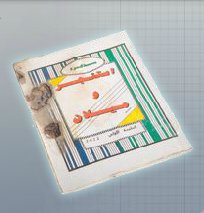By guest author Ian Hansen
As a supporter of human rights and locally-controlled democracy in Iraq, I am dismayed to see Fallujah fall to Al Qaeda.

Some may see poetic justice for the U.S. in this development: the U.S. war of aggression has clearly backfired in Fallujah. But there’s no justice in it for the people of that historic city. I would have been happy to see Fallujah residents lead a nonviolent civil disobedience movement to regain control over their communities, but the ascendance of Al Qaeda there is a tragedy.
The people of Fallujah have already endured enough massacres, destruction of the city’s ancient buildings and mosques, and chemical weapons horrors from the U.S. siege in 2004. And although the draconian rule of the U.S.-aligned Iraqi Security Forces should be overthrown by local democratic rule, the siege by Al Qaeda is, if anything, a regression, not an improvement.
Al Qaeda is not a progressive organization, and there is nothing redeeming about it. It’s a violent oppressive scourge on Islam in much the same way that the Christian Coalition–and the U.S. military-industrial-ideological machine generally–is a violent and oppressive scourge on Christianity.
It is not a coincidence that Al Qaeda as a movement arises largely from the Arabian Peninsula, most of which is controlled by an oil-rich U.S.-Israeli ally (Saudi Arabia). Saudi Arabia–one of the most draconian autocracies in the Middle East–is playing a disgraceful role in the Syrian disaster right now; it just got around to abolishing slavery in 1962. Al Qaeda is at odds with the Saudi regime in obvious ways, but in other obvious ways Al Qaeda mirrors its core values.
And I don’t think that violent decision-makers in the U.S. actually want Al Qaeda to disappear (though until more evidence pours in, this is more of an accusation against our leadership’s unconscious intentions than their conscious ones).
Even at the time of 9/11, Al Qaeda was originally a pretty paltry and unpopular group. The Afghanistan and Iraq wars, the drone assassinations, and the other Joint Special Operation Command-CIA paramilitary killings all over the world seem to have only magnified Al Qaeda’s international presence.
Ian Hansen, Ph.D., is an assistant professor in the Department of Behavioral Sciences at York College, City University of New York. His research focuses in part on how witness for human rights and peace can transcend explicit political ideology. He is also on the Steering Committee for Psychologists for Social Responsibility.

